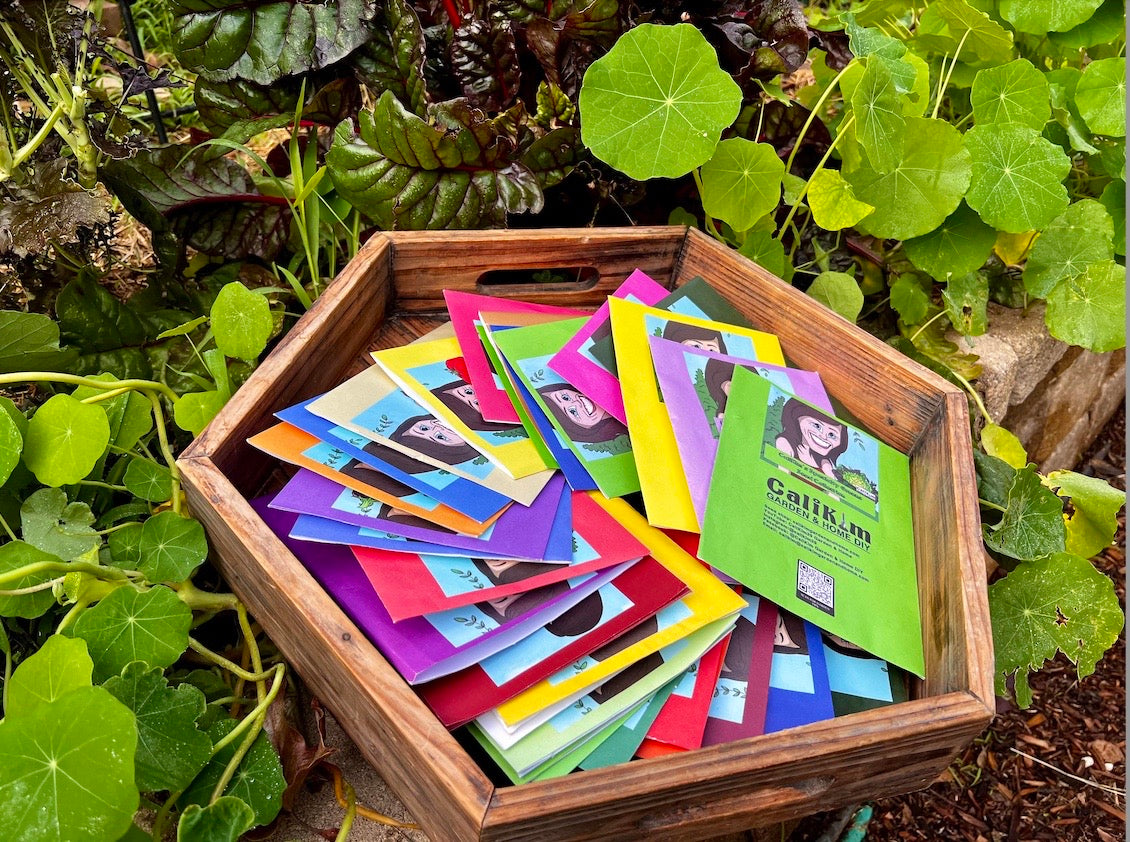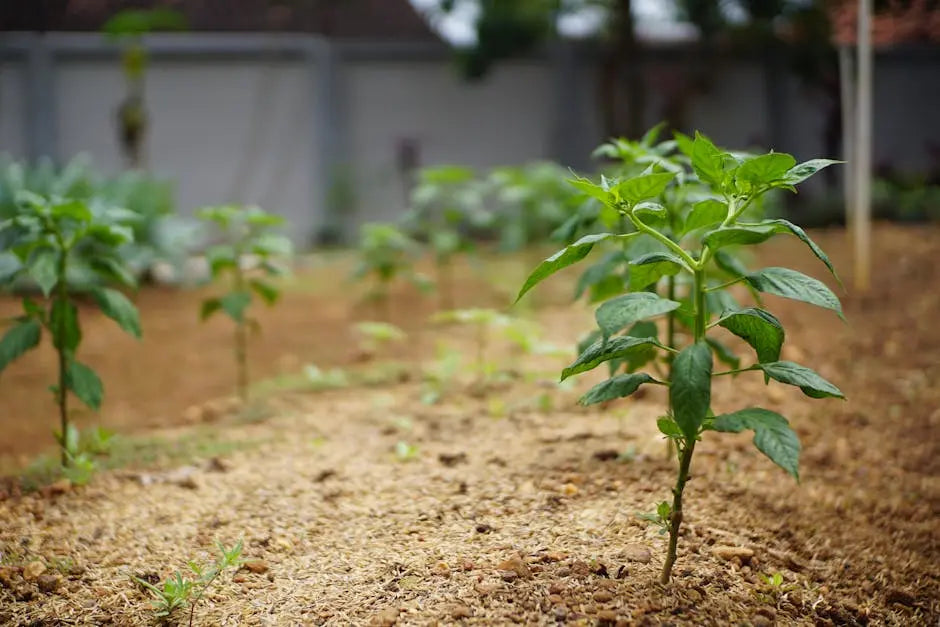Creating a thriving garden begins with the right seeds. Organic seed collections offer a wonderful variety and promise healthier plants for a flourishing garden. In this blog, we’ll explore how choosing organic seeds can transform your gardening experience, leading to abundant blooms and crops. Let’s dig into the world of organic seed collections!

Understanding Organic Seed Collections
Organic seed collections are curated selections of seeds from plants that are grown without the use of synthetic fertilizers or pesticides. This section will discuss what qualifies as organic and the benefits of choosing these seeds for your garden.
Not all seeds are created equal, and understanding what makes seeds organic can empower your gardening choices. Organic seeds come from plants that have been cultivated in eco-friendly ways, which often results in seeds that are adapted to local conditions and resilient against pests. This unique aspect of organic seeds contributes to creating a vibrant garden that thrives rather than merely survives.
Moreover, organic seed collections focus on preserving heritage varieties and promoting biodiversity. By opting for these seeds, gardeners help maintain the delicate balance of ecosystems. It’s fascinating to realize that with every seed you plant, you’re also planting a piece of the environment, making a conscious choice that benefits not just your garden but the planet as a whole.
Benefits of Organic Seeds for Your Garden
Organic seeds contribute to the health of your garden in various ways, including promoting biodiversity, improving soil health, and yielding more flavorful fruits and vegetables. We will explore these benefits in detail.
One of the most significant advantages of using organic seeds is their positive contribution to soil health. When grown organically, plants help enhance the natural soil ecosystem, improving its structure and nutrient content. They strengthen beneficial microorganisms, creating a rich environment that supports plant growth. This living soil acts like a sponge, retaining moisture and nutrients, leading to more robust plants.
Additionally, organic seeds often produce more flavorful and nutritious crops. Without the influence of artificial chemicals, plants focus their energy on developing richer flavors and enhanced nutrients. Have you ever bitten into a garden-fresh tomato? The explosion of flavor is truly a result of how these seeds are nurtured and grown. Besides taste, the health benefits of organic produce cannot be overlooked—they’re packed with vitamins and antioxidants, making them a boon for your wellbeing.
Another appealing aspect of organic gardening is its capacity to foster a diverse ecosystem. By planting a range of species from organic seed collections, you attract beneficial insects and pollinators to your garden. Diversity not only makes for a vibrant landscape but creates a resilient garden that can better withstand pests and diseases. Overall, the benefits of organic seeds extend far beyond immediate gardening, contributing to a larger environmental impact.
How to Choose the Right Organic Seeds
With so many options available, selecting the right organic seeds can be overwhelming. This section will provide tips on how to choose seeds that suit your garden’s conditions and your personal preferences.
When it comes to choosing organic seeds, first consider your local climate. Different plants have unique requirements when it comes to temperature, sunlight, and moisture. By selecting seeds that are well-suited to your geographic area, you can ensure they thrive. For instance, heirloom tomatoes may excel in warm climates, while leafy greens may prefer cooler weather. Knowing your region’s compatibility with certain plants will set you up for success!
Another critical factor is the harvest time. Some seeds will bear fruit in a matter of weeks, while others may require a season or more. It’s essential to consider how long you are willing to wait for your garden to yield its bounty. Researching the growth cycles can provide insight into which seeds will bring immediate delight and which may require a little more patience. After all, patience is truly a virtue in gardening!
Don’t forget to think about your family’s eating habits! If your household loves fresh salads, selecting seeds for salad greens and vegetables will be more satisfying than growing items that won’t get used. Understanding your own culinary preferences can help guide your organic seed choices. And remember, starting small with your favorite plants can make the learning curve of gardening less overwhelming while still yielding delicious results.
Starting Your Organic Seed Collection
Once you’ve decided to use organic seeds, where do you begin? This section will guide you through creating your own organic seed collection, including sourcing seeds and storing them properly.
Building your organic seed collection can feel like embarking on a treasure hunt. Start by exploring local farmers’ markets or gardening stores that specialize in organic products. Seed exchanges are another fantastic resource, allowing you to swap seeds with fellow gardeners. These communities often provide unique varieties that aren’t available in commercial stores, giving your garden a personalized touch that reflects your style and desires.
Proper storage is crucial once you’ve gathered your seeds. Organic seeds, like any precious treasure, should be stored in a cool, dark, and dry place to maintain their viability. Consider using airtight containers or envelopes labeled with the seed type and date collected. This simple practice not only keeps them secure but also helps you keep track of their lifespan. A well-organized seed collection is not just practical; it’s a joy to behold as you imagine future harvests!
Nurturing Your Seeds into Thriving Plants
The journey from seed to plant involves careful nurturing. We will discuss best practices for germinating and caring for your organic seeds to ensure they grow into strong, fruitful plants.
Germination is an exciting first step in your gardening journey! Ensuring you provide optimal conditions—such as proper moisture and warmth—can significantly affect your seeds’ success. Some gardeners swear by seed-starting trays, which help maintain a controlled environment until the tender seedlings are ready to face the elements. Remember, patience is key; not all seeds germinate at the same rate, and some may take longer than others. Celebrate the small victories, like the first green shoots breaking through the soil!
As your plants grow, they will need your attention and care. Regular watering, mindful of not over-saturating the soil, provides nutrients while promoting growth. Fertilization with organic options like compost or fish emulsion can support the blossoming health of your plants. Paying attention to signs of distress, such as wilting or discolored leaves, allows you to take action before issues escalate, ensuring your plants remain robust and vibrant.
Finally, don’t overlook the importance of enjoying the gardening process itself. Spend time observing your plants, appreciating how they change and develop, much like tending to a relationship. Each garden tells a story, and nurturing your organic seeds into thriving plants is where the magic happens. Celebrate the journey, and soon, you’ll be rewarded with a fruitful garden that showcases your dedication and love for nature.
The Path to a Thriving Garden with Organic Seeds
In summary, organic seed collections are not just about planting seeds; they’re about cultivating a healthy ecosystem and enjoying the benefits of a bountiful garden. By starting with the right seeds and nurturing them with care, you can create a thriving garden that brings joy and sustenance to your life.





